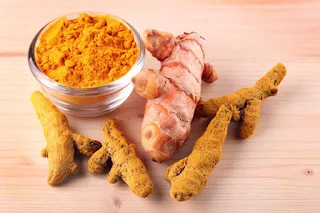How to Prevent and Treat Kidney Failure Naturally: Herbal and Dietary Solutions
Kidney Health: Natural Ways to Slow Down Renal Failure
Disclaimer:
While these natural methods might be beneficial, it is critical to speak with a healthcare expert before making significant changes to your lifestyle or diet, especially if you have a pre-existing medical issue. Kidney failure can be a significant health condition, but there are things you can do to limit its progression. While medical treatments are necessary, adopting natural ways into your daily routine can also benefit kidney health. Here are some tips: 1. Monitor Your Diet Limit your sodium intake: Excess sodium intake can cause high blood pressure, which is a major risk factor for renal disease. Choose fresh produce, lean protein, and nutritious carbohydrates. Control potassium levels: If your doctor advises you to restrict potassium,
1. Watch Your Diet
- Limit sodium: Excessive sodium intake can contribute to high blood pressure, which is a major risk factor for kidney disease. Opt for fresh produce, lean proteins, and whole grains.
- Control potassium: If your doctor has advised you to limit potassium, be mindful of your food choices. Bananas, avocados, and leafy greens are high in potassium.
- Moderate protein: While protein is essential, excessive intake can strain your kidneys. Consult your doctor for personalized recommendations.
- Stay hydrated: Drinking plenty of water helps flush out toxins and keeps your kidneys functioning optimally.
2. Exercise Regularly
- Physical activity: Regular exercise can help manage blood pressure, weight, and blood sugar levels, all of which are important for kidney health.
- Choose low-impact activities: Opt for activities like swimming, walking, or yoga to reduce stress on your joints.
3. Manage Underlying Conditions
- Diabetes: Keeping your blood sugar levels under control is crucial for preventing kidney damage.
- High blood pressure: Work with your doctor to manage your blood pressure through medication and lifestyle changes.
4. Consider Herbal Supplements
Evidence:
may offer some benefits for kidney health due to its anti-inflammatory and antioxidant properties, but its effectiveness in treating or managing kidney failure specifically is not well-established through clinical research.
- Consult a healthcare professional: While some herbal supplements may offer benefits, it's essential to consult with a qualified healthcare provider before starting any new supplement regimen.
- Research potential interactions: Be aware of potential interactions between herbal supplements and medications you may be taking.
5. Reduce Stress
- Stress management techniques: Incorporate stress-reduction techniques like meditation, deep breathing, or yoga into your daily routine.
Remember, these natural approaches can be supportive but should not replace medical advice or treatment. Always consult with your healthcare provider to develop a personalized plan that suits your specific needs. By taking proactive steps to protect your kidneys, you can improve your overall health and well-being.













.jpeg)
.jpeg)



